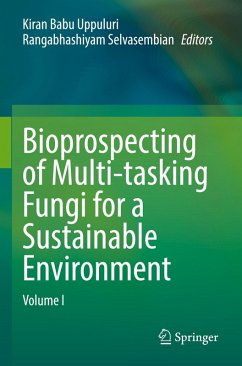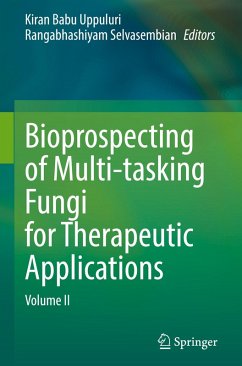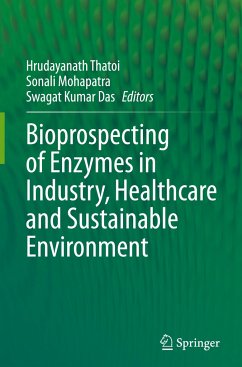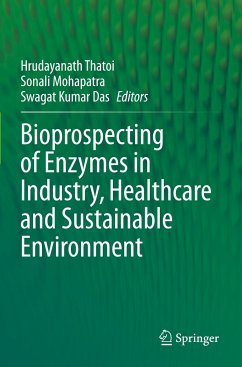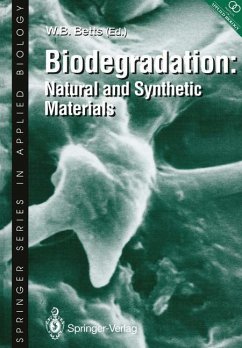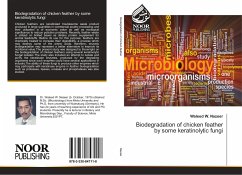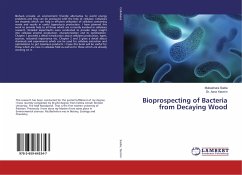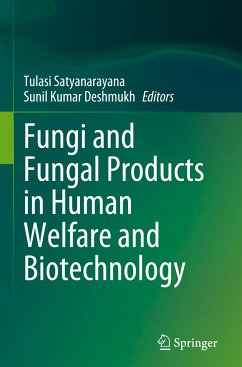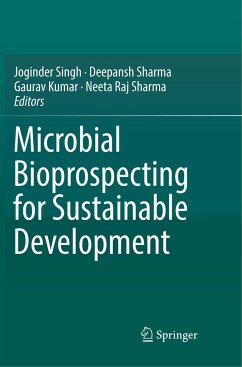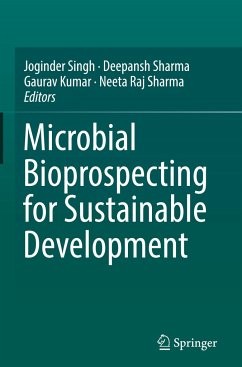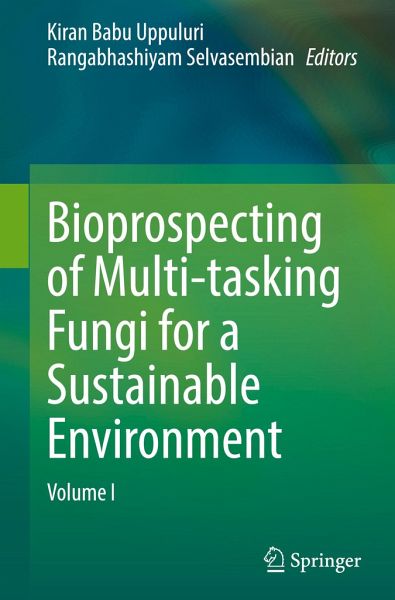
Bioprospecting of Multi-tasking Fungi for a Sustainable Environment
Volume I
Herausgegeben: Uppuluri, Kiran Babu; Selvasembian, Rangabhashiyam

PAYBACK Punkte
76 °P sammeln!
This book highlights the types and importance of multitasking fungi and provides critical analysis of fungi involved in production of important enzymes. It also covers additional tasks of fungi such as biosorption, remediation, soil fertilization, and water treatment. This book discusses the types of fungi, their cultivation, execution of multitasking, and the analysis and recovery of products. This information can be used to understand and improve the effectiveness and efficiency of fungi in the production of a variety of products, such as antibiotics, enzymes, and biofuels.This book would be...
This book highlights the types and importance of multitasking fungi and provides critical analysis of fungi involved in production of important enzymes. It also covers additional tasks of fungi such as biosorption, remediation, soil fertilization, and water treatment. This book discusses the types of fungi, their cultivation, execution of multitasking, and the analysis and recovery of products. This information can be used to understand and improve the effectiveness and efficiency of fungi in the production of a variety of products, such as antibiotics, enzymes, and biofuels.
This book would be of interest to researchers working in industrial biotechnology, fungal physiology, environmental sciences and technology, sustainable technologies, and agricultural sciences.
This book would be of interest to researchers working in industrial biotechnology, fungal physiology, environmental sciences and technology, sustainable technologies, and agricultural sciences.





